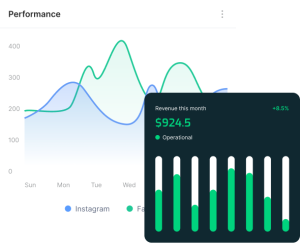campaign or publication on pain management
Understanding and Managing Pain: Taking Control of Your Wellbeing
Pain is something we all experience — but it doesn’t have to control your life.
Whether it’s a short-term ache or a long-lasting discomfort, pain is your body’s way of telling you that something needs attention. Learning how to manage pain effectively can improve your quality of life, restore independence, and bring peace of mind.

What Is Pain?
Pain is more than just a physical sensation — it can affect your emotions, sleep, mobility, and even relationships. It may come from injury, surgery, chronic illness, or stress. Everyone experiences pain differently, which means there’s no one-size-fits-all solution.
Why Pain Management Matters
Ignoring pain or masking it without proper guidance can make things worse. Effective pain management helps you:
-
Regain physical strength and function
-
Reduce stress and fatigue
-
Prevent long-term complications
-
Improve mood and mental health
-
Enhance overall wellbeing
Healthy Ways to Manage Pain
-
Seek Professional Help: Always consult a doctor, nurse, or physiotherapist for accurate diagnosis and treatment.
-
Use Medications Wisely: Take prescribed drugs exactly as directed — misuse can be harmful.
-
Stay Active: Gentle exercises like walking, stretching, or swimming can reduce stiffness and strengthen your body.
-
Practice Relaxation: Breathing exercises, meditation, and adequate rest help calm both body and mind.
-
Nutrition and Hydration: A balanced diet supports healing and reduces inflammation.
-
Support Systems: Talk about your pain — emotional support from family, friends, or counseling can make a big difference.
why will some one choose to have subutex
Remember: Pain Is Real, but Relief Is Possible
Managing pain is not just about medication — it’s about understanding your body, making lifestyle adjustments, and working closely with health professionals. Together, we can move toward a life with less pain and more comfort.
🌿 What Is Pain?
Pain is the body’s alarm system — a signal that something isn’t right. It can be short-term (acute), like a cut or sprain, or long-term (chronic), such as back pain, arthritis, or nerve pain.
No matter the cause, your pain deserves attention and care.
💬 Why Pain Management Matters
When pain is not managed properly, it can lead to:
-
Poor sleep and fatigue
-
Stress and low mood
-
Difficulty working or taking care of your family
-
Dependence on pain medicines
Good pain management helps you live better, move better, and feel better.
🌞 Simple Ways to Manage Pain in Everyday Life
-
Talk to a Health Worker: Don’t suffer in silence — nurses, doctors, and community health officers can help identify the cause and offer safe treatment.
-
Take Medicines the Right Way: Only use painkillers prescribed or recommended by a professional. Avoid self-medication.
-
Stay Active: Gentle exercises like stretching, walking, or light chores can keep your joints flexible and muscles strong.
-



🕊️ Let’s Talk About Pain: Understanding and Managing It Together
Pain is part of life — but living in pain doesn’t have to be.
Every day, many people in our communities live with pain from injuries, illnesses, or daily stress. Some try to ignore it, while others rely on home remedies or painkillers without proper guidance.
It’s time to change that — by learning how to manage pain safely and effectively.
🌿 What Is Pain?
Pain is the body’s alarm system — a signal that something isn’t right. It can be short-term (acute), like a cut or sprain, or long-term (chronic), such as back pain, arthritis, or nerve pain.
No matter the cause, your pain deserves attention and care.
💬 Why Pain Management Matters
When pain is not managed properly, it can lead to:
-
Poor sleep and fatigue
-
Stress and low mood
-
Difficulty working or taking care of your family
-
Dependence on pain medicines
Good pain management helps you live better, move better, and feel better.
🌞 Simple Ways to Manage Pain in Everyday Life
-
Talk to a Health Worker: Don’t suffer in silence — nurses, doctors, and community health officers can help identify the cause and offer safe treatment.
-
Take Medicines the Right Way: Only use painkillers prescribed or recommended by a professional. Avoid self-medication.
-
Stay Active: Gentle exercises like stretching, walking, or light chores can keep your joints flexible and muscles strong.
-
Rest and Relax: Sleep, deep breathing, or quiet time helps the body heal faster.
-
Eat Well: A balanced diet with fruits, vegetables, and enough water supports your body’s recovery.
-
Lean on Others: Sharing how you feel with friends, family, or support groups can ease emotional pain too.
❤️ You’re Not Alone
Pain can be managed — and healing begins with awareness and support.
Let’s look out for each other, visit our local health centers when in pain, and spread the message:
Managing pain is not weakness — it’s self-care and strength.